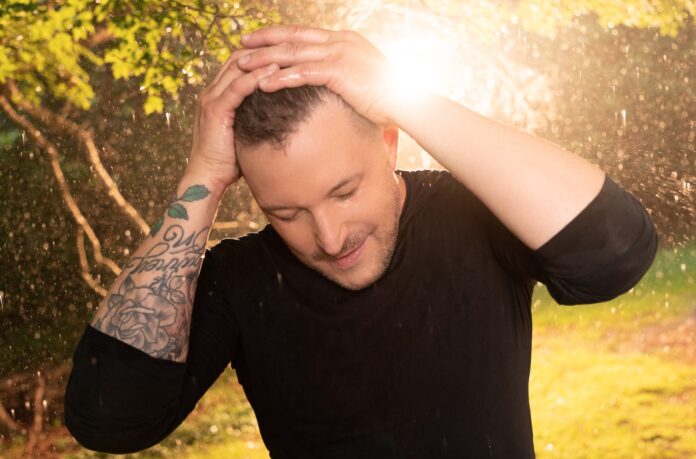Ty Herndon’s wonderful and powerful new album, “Jacob,” available July 15, is the out gay country singer’s most personal and soul-bearing recording to date. All of the songs reflect moments from Herndon’s life, including his battles with addiction, coming to terms with his sexuality, and experiencing love and loss. The music is equally complex, from the twangy, upbeat tunes “Dents on a Chevy” and “Damn Good Feeling,” ballads like “Lean In,” duets like “Landslide,” as well as the Latin-flavored “Say It for You” and the gospel-infused “Hallelujah.”
Herndon has a strong voice both as a singer and a songwriter. In a recent interview, he chatted with PGN about his music and his road to recovery.
“Jacob” is full of raw emotion, especially the song, “Fighting with Me.” Can you talk about expressing your pain and recovery in this album?
I got to talk about thirty years of pain and growth and anger and happiness, which I’ve never really had the opportunity to talk about before. I started to do some mental health work. Recovery is a personal journey; I survived this, and I’m going to write a record about changing. It’s like someone who had never been happy finding happiness and doesn’t know how to deal with it. I had to grow a little. I started sweeping out years of trauma and mistakes and connecting the dots — I was diagnosed with bipolar disorder late in life. I went into treatment and worked on heavy stuff in my life, and the good news is I wrote this incredible record that tells the whole story.
The album’s catchy single, “Till You Get There,” is about moving on after failure and realizing your inner strength. Was making “Jacob” therapeutic?
I don’t get insecure — I’ve been through stuff, but I’ve never put everything on the table before. Because there were things I don’t want to talk about, I felt they were better left alone. I got to work with some top trauma specialists, and they told me, it’s like a layer of tar you have to bust open and talk about. I’ve not talked about [my] marriages, or arrests. It was shut down in me. I was able to have enough God in my heart and soul and spirit to keep going and rebuild. This album says everything I’ve always wanted to say. There are very deep and emotional, hidden moments in all of these songs. I’m battling the scars and getting them out of me and letting go of so much. I’ve been sober for a long time, but I’ve never did sober like I am doing sober now. I needed to care for others along with caring for myself. I needed to care for myself better.
Your previous album, “House on Fire,” did not use pronouns. Were you still deliberately writing gender neutral on “Jacob”?
I don’t think I thought about it this time. If it is, it’s by complete accident. The gender-neutral thing was playing catch up for coming out late in life.
You recently ended a relationship. Can you talk about the breakup songs on “Jacob”?
Matt [Herndon’s ex] and I are really good friends. He lives just up the street and he’s always here because I have groceries. There are four songs on “Jacob” where I wrote about that pain. This album should be called “Jacob and Matt.” [Laughs.] “Say it for You” is my Alanis Morissette, bye-bye, can’t really do this anymore, but I will always love you song. I will honor how wonderful we were together. If I love you, I’m going to always love you, and I like to leave things better than I found them. Now is the first time ever Matthew and I both agree that we left it in great shape and where we are today is even better. I’ll dance at his wedding. I’ll probably give him away.
Do you have a personal favorite song on “Jacob”?
“Hallelujah.” It was initially as a love song to my future person, wherever he is. I wrote him a song before he showed up. By the time I recorded the track and started doing the vocal, it was not about that at all; it was a love song for God. And where it landed is 100 million percent a love song to myself. I have done the work to love this vessel and this house [referring to himself] best. It’s a redemption song, a miracle song about that idea that you can love yourself enough. You need to love yourself that much — all the stuff I never took the time to think about. This whole process has changed me, and change needed to happen. I just didn’t believe in myself enough to allow it. I didn’t think I could do it. I thought the capacity to make that change, I would end up failing and disappointing someone.
You seem to be in a very good place now. Can you talk about that?
My support system in my career and my family is perfectly placed and I feel perfectly placed. I feel there’s a reason I’m here. I know that there always has been, but it is interesting the things you tell yourself over the years so you can be OK with yourself. They became lies I told myself that I’m glad I didn’t believe.
